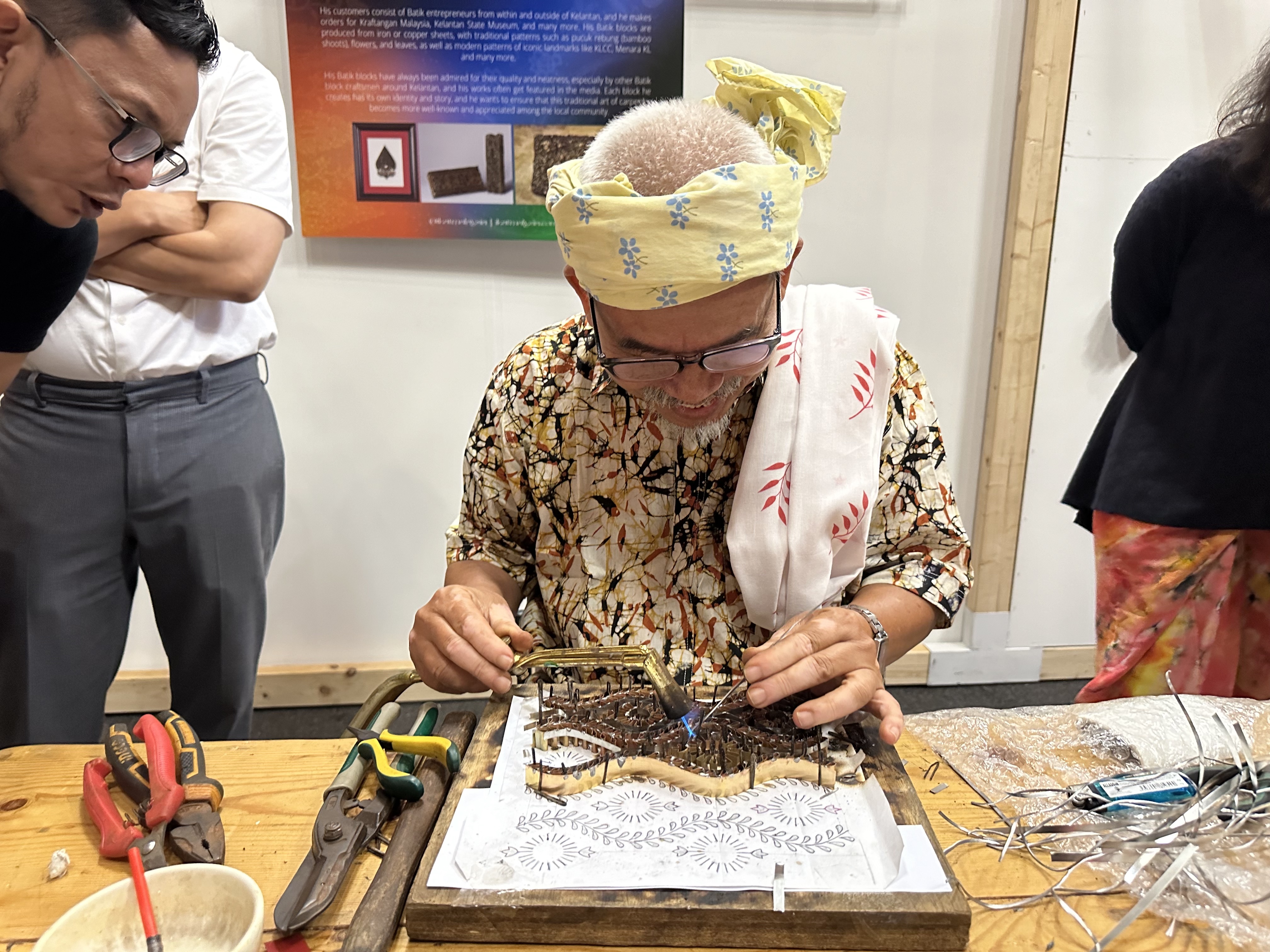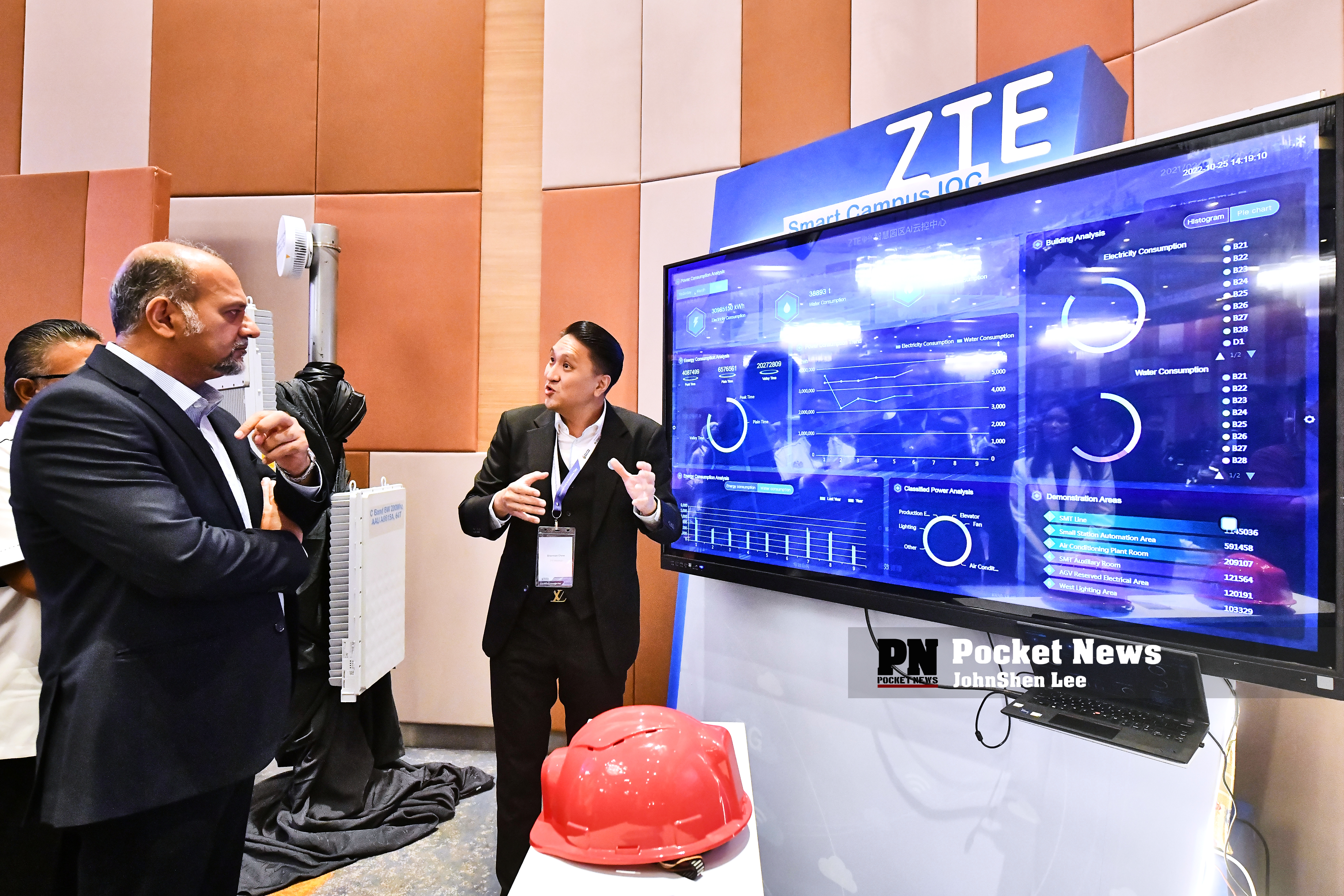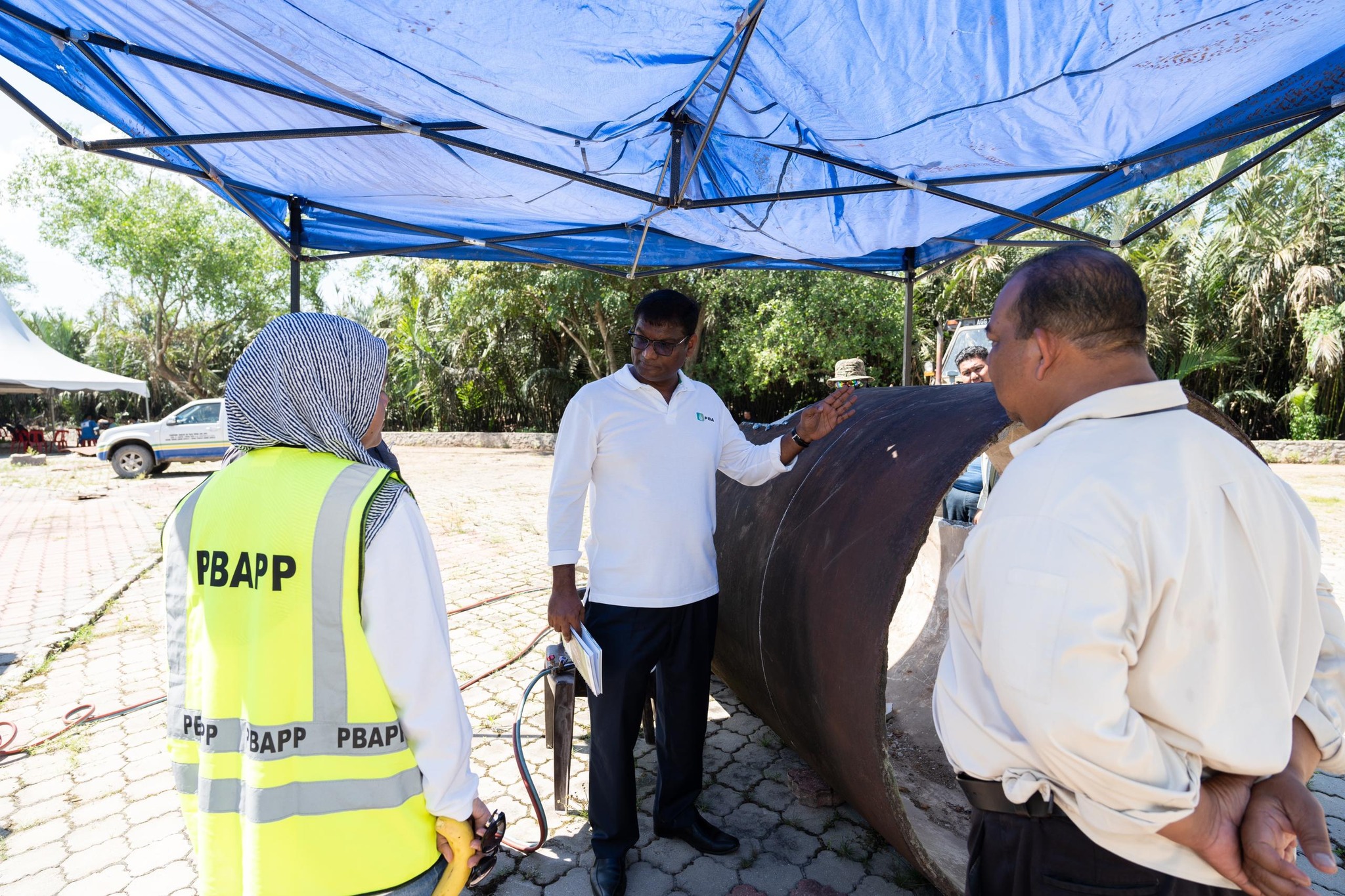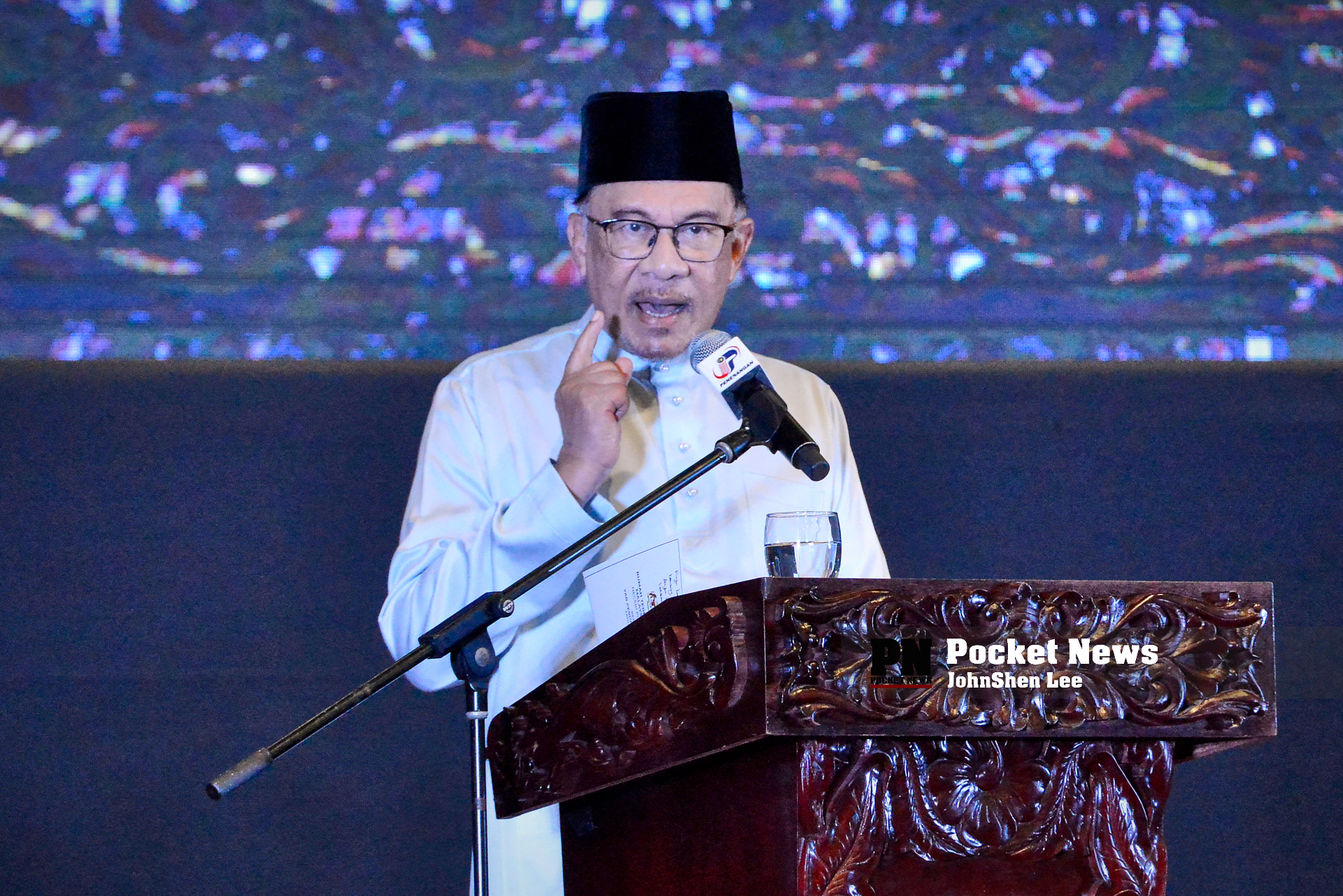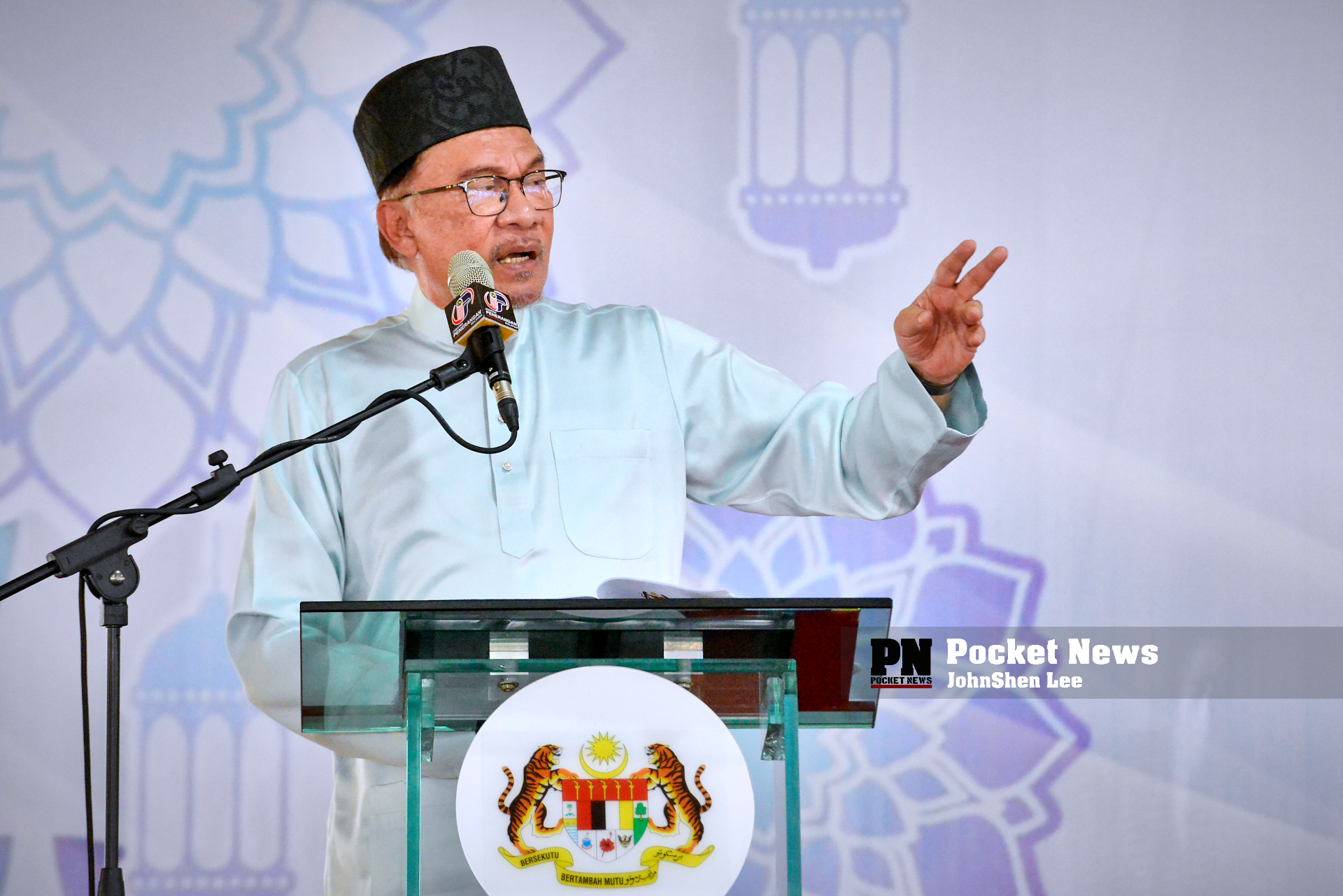
 BERA, November 21 – We can gather this morning to succeed in the Launching Ceremony of the Malaysian Digital Family Economy Center (PEDi) which aims to strengthen digital economic activities, especially in rural areas. Firstly, I would like to express my appreciation to the Most Honorable Dato ‘Sri Wan Rosdy bin Wan Ismail, Menteri Besar of Pahang; The Honorable Tan Sri Datuk Seri Panglima TPr Annuar bin Haji Musa, Minister of Communications and Multimedia; and the entire staff of the Ministry of Communications and Multimedia Malaysia and the Malaysian Communications and Multimedia Commission (or MCMC) who have worked hard to make the event a success today.
BERA, November 21 – We can gather this morning to succeed in the Launching Ceremony of the Malaysian Digital Family Economy Center (PEDi) which aims to strengthen digital economic activities, especially in rural areas. Firstly, I would like to express my appreciation to the Most Honorable Dato ‘Sri Wan Rosdy bin Wan Ismail, Menteri Besar of Pahang; The Honorable Tan Sri Datuk Seri Panglima TPr Annuar bin Haji Musa, Minister of Communications and Multimedia; and the entire staff of the Ministry of Communications and Multimedia Malaysia and the Malaysian Communications and Multimedia Commission (or MCMC) who have worked hard to make the event a success today.
Sustainable national development to enable Malaysians to enjoy a better standard of living and high -income and challenge -proof in the future is one of the Government’s main agenda. This is to achieve Malaysia’s objectives in the 12th Malaysia Plan (or 12MP) which is Prosperous, Inclusive and Sustainable by focusing on efforts to revive economic growth and ensure that the country’s prosperity can be better distributed.The Government has launched various initiatives from time to time in an effort to restore and revitalize Malaysia’s socio -economic development for long -term sustainability and prosperity.
Digital transformation is much needed and it plays an important role in enhancing competitiveness, boosting economic growth and ensuring that the country’s prosperity can be distributed more widely. To ensure that no one is left behind in the wave of digitization, the Government together with the industry has provided infrastructure, encouraged innovation and created a complete ecosystem for all of us to contribute towards a higher standard of living so that the results will be enjoyed by every Malaysian family.
Recognizing that Internet skills can open up economic opportunities and directly improve living standards, the Government has provided the Malaysian Family Digital Economy Center (or PEDi) nationwide. It aims to provide facilities to the country’s 15.4 million people, especially the B40 group and rural communities. PEDi aims to improve the socio -economic status of the local community and provide exposure to digital skills so that all residents, regardless of social or geographical location, are able to participate and take opportunities in the digital economy.
A total of 873 existing PEDi will be enhanced and intensified as One Stop Centers for rural digital economic activities. Each PEDi is equipped with broadband service access, digital infrastructure facilities as well as trained staff to provide the services and support needed by the local community. In addition, a total of 37 new PEDi will be opened in the first quarter of 2022, while another 173 PEDi will be operational by the end of next year. This brings to a total of 1,083 PEDi operating nationwide.
In Bera alone, there are a total of 1,158 participants who have registered as PEDi members and used this center to attend Entrepreneurship Classes such as basic photography and marketing methods at Shopee and Yezza. A total of 48 entrepreneurs have been trained at this PEDi of which 47% are entrepreneurs who run food and beverage businesses, 42% in fashion and lifestyle and among others are services, agro and electronics.
In addition to infrastructure facilities, the Government is confident of having a PEDi Advisory Panel, PEDi Digital Partners and Icon Entrepreneurs in each PEDi, encouraging the local community to get involved in the activities organized and make full use of the services at the PEDi. It doesn’t matter if you are young or old. The main focus of PEDi is to produce and empower small entrepreneurs towards innovative and competitive digitization. The Small and Medium Micro enterprise sector (PMKS) is a pillar of the country’s economy.
At the end of 2020, the number of SMEs accounted for almost 1.2 million, or 97.2 per cent of the total number of enterprises. Most PMKS are still less competitive and need to be strengthened after being affected by the COVID-19 pandemic. The Government provides incentives to modernize businesses by adopting advanced technology and digitization, thus opening up opportunities for PMKS entrepreneurs to explore the world market.
PEDi has become a one -stop center to bring small entrepreneurs closer to being friendly to the digital economy. Various programs are available to help small entrepreneurs start businesses or increase demand for their products. It is hoped that these small entrepreneurs will then be able to grow their business to a better level using online access and e-commerce platforms. The ability of small entrepreneurs to adapt to digitization and technological developments will increase efficiency and in turn, drive business in the long run.
The small entrepreneur empowerment program led by MCMC, in collaboration with agencies and industry players, targets 800,000 small entrepreneurs to benefit by 2025. The Government is confident that this program will stimulate the local community, especially the youths, to equip themselves with sophisticated digital knowledge to compete to build the future, especially those who are interested in venturing into business or entrepreneurship.
With this effort, the Government hopes that these entrepreneurs can increase production and productivity which will generate profit and thus, it maintains business and employment, thus creating employment opportunities for Malaysians. In addition, through Budget 2022, the Government continues to provide financial support to PMKS of RM40 billion for grants, guarantees and equity and most of it is provided for PMKS. This will be the catalyst for the implementation of the 12th Plan where PMKS is expected to contribute 45 per cent to Gross Domestic Product (or GDP) and 25 per cent of total exports by 2025.
The Government is confident that this effort will not only bridge the digital divide but will also spark digital innovation that can drive the country’s aspiration to develop a digital economic agenda. It is the nation’s aspiration to transform Malaysia into a digital -driven high -income nation and a regional leader in the digital economy. In line with the Malaysian Family goal of emphasizing the values of Inclusion, Togetherness and Gratitude, the government will closely monitor the implementation of planned programs and initiatives.
The Government will continue to support and focus on building the country’s digital economy infrastructure through various improved initiatives such as the existence of this PEDi to drive the national agenda and Malaysia is ready to showcase the country’s progress as it shifts to digital economic power in the region soon. Entrepreneurship empowerment activities at PEDi are a continuation of the Malaysian Digital Economy Blueprint (MyDIGITAL) initiative aimed at enabling the business sector to be competitive by strengthening operational smoothness and efficiency such as encouraging SMEs to adopt e-commerce.



